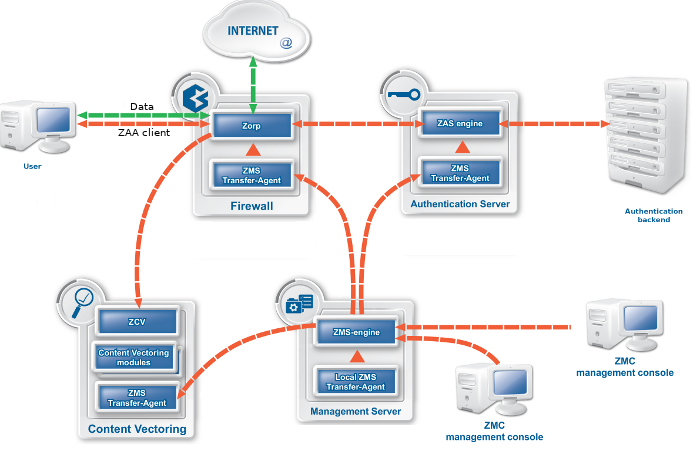The Zorp Management Server (ZMS) is the central component of the Zorp Management System. It governs all configuration settings, manages the firewall services through agents and handles database functions.
ZMS provides a tool for the complete control and maintenance of the Zorp firewalls entirely. It is possible to create new firewall configurations, and navigate them to the firewall nodes. ZMS stores these configurations in an associated XML database making them available for later administrative operations.
Communication with the Zorp firewall software is realized by the Transfer Agent responsible for accepting and executing configuration commands.
For further information on ZMS and the basic architecture, see Chapter 2, Concepts of the Zorp Gateway solution.
To modify firewall settings carry out the following procedure regardless of which component is configured.
Make the necessary changes in a component's configuration.
Changes can be undone with the option as long as they are not committed to the ZMS database.
Commit the new configuration to the ZMS database.
The ZMS host stores the modified information in its XML database. Remember to commit the changes before leaving the component.
View the new configuration and compare it with the current firewall configuration with the help of the and options, respectively.
Upload the configuration to propagate the changes from the ZMS database down to the firewalls(s).
During this process the ZMS converts the configuration data to the proper configuration file format and sends them to the transfer agents on the firewall nodes.
Reload the altered configuration or restart the corresponding services to activate the changes.
Typically, reloads or restarts are performed after finishing all configuration tasks with the various service components.
For more details, see Chapter 3, Managing Zorp hosts.
Published on May 30, 2024
© BalaSys IT Ltd.
Send your comments to support@balasys.hu



